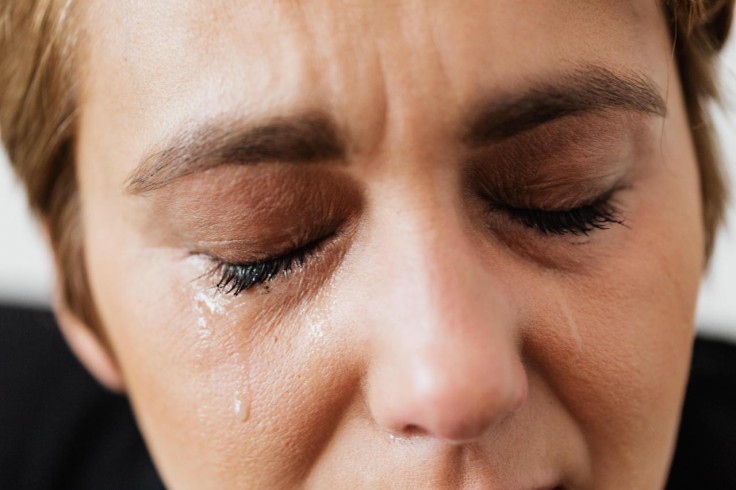
When you're a new parent, there's the concept that being fatigued is just part of it. In some ways, that is true. Having a new baby can lead to plenty of sleepless nights, and to some extent being tired is normal.
However, if you're too fatigued, it can impact your functionality and it can even be dangerous.
For example, if you drive when you're excessively fatigued, it can mean that you're at a greater risk of being in an accident.
Excessive fatigue, particularly over an extended period, can also lead to negative health effects. For example, regularly experiencing fatigue can put you at an increased risk of cardiovascular disease.
So what can you do to beat postpartum fatigue and boost your energy levels so that you're safer and healthier?
Let Yourself Recover
Some of the fatigue that occurs postpartum is because you're up with a crying baby who needs to be fed, but there's often more to it than this.
For example, many new moms don't understand that they need to recover from childbirth, and they need to be easy on themselves during this time.
It can take up to eight weeks to recover and sometimes even longer.
Be patient with yourself, and when you feel like you're overdoing it, take a step back.
Rest and relax when you need and as you need.
Share the Responsibilities
Ensure that you and your partner are sharing the responsibilities of a new baby.
You can tag-team throughout the night feedings for example or divide and conquer.
One of you might go to bed early and then do early morning feedings, while the other can do the reverse.
Sometimes as moms, we feel like we want to do it all, but if help is available, accept it.
You being fatigued and worn-down isn't good for you, your baby, or your family.
Soundproof Your Room a Bit When You Sleep
If you're comfortable with it, you might want to use a white noise machine or add soothing music to your room when you do get the chance to nap or sleep.
There's a reason for this.
When you're a mom, it's easy to worry yourself about every little noise that's coming from the baby's room, even if your partner is up and taking care of the baby. You may be wondering if they're doing it the way you would.
This can keep you from getting sleep.
White noise can block out some of the smaller and less significant noises.
This will also help you let go of control a bit more and trust your partner if they're on duty.
Eat the Right Foods
A lot of how you feel after you have a baby is related not only to sleep patterns but also other things you're doing or not doing for your health.
The foods you eat are extremely important, especially if you're breastfeeding, which takes many calories.
The slow-burn approach can be a good way to plan your meals and snacks. The idea is combining protein and complex carbs that will fuel you and give you sustainable energy.
Things like sugar and caffeine may give you a temporary boost of energy, but you'll ultimately crash and burn if you overdo it.
Have snacks on hand that are healthy and that you can easily graze on as you want.
This will help you avoid the risks that come with skipping meals or going too long without eating.
Eating a few small meals at various points throughout the day will stabilize your blood sugar levels and help you fight fatigue.
Drink plenty of water. You probably lost a lot of fluids during delivery, and you also lose fluid when breastfeeding.
Dehydration can often cause fatigue.
Be careful with alcohol intake. It's probably okay to unwind with a glass of wine, but if you drink too much, it interferes with your sleep quality when you do get quiet time.
Put a Limit On Visitors
When you have a new baby it can seem like everyone wants to visit. However, if you have too many people around you're putting your energy toward entertaining rather than other things.
If you limit your visits, you can preserve your energy and use more time to nap or rest.
Your brain is already on high alert anyway, so why make that worse by thinking you have to be "on" and engaged with visitors.
Avoid Multitasking
It's a natural tendency to want to multitask in different areas throughout your life, but doing so can actually make you less productive and more tired. If you can focus on just one thing at a time, you're more likely to get that done.
Multitasking takes a toll on your brain, and mental fatigue is linked to physical fatigue.
Watch for Signs of Postpartum Depression
Again, feeling tired after you have a baby is normal, but you need to watch for signs that it could be something else.
If you're very tired for weeks after birth, to the point that it feels abnormal to you, it can be a sign of postpartum depression.
Depression can cause fatigue, and fatigue can also cause depression.
Speak to your doctor if your fatigue is ongoing, and you can't seem to feel better.
Other Medical Conditions Linked to Fatigue
There are two other serious conditions that are related to fatigue and can be common in women.
The first is anemia. Anemia can be due to dietary deficiencies or blood loss that occurs during delivery.
Your doctor can check your blood if you're experiencing severe fatigue you think could be linked to anemia.
Hypothyroidism is another medical condition where fatigue is a key symptom.
Some women develop an underactive thyroid gland anywhere from one to four months after delivery, so talk to your doctor about this as well.
It's important when you're a new mom that you not just take time for yourself but also learn to recognize signs and symptoms that your fatigue could be something more.